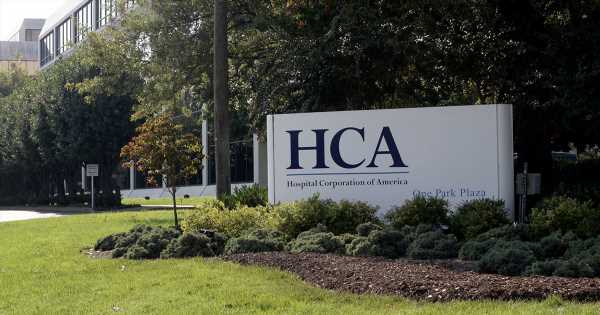HCA Healthcare and Google Cloud on Tuesday said they’re working together to use generative AI to improve clinical workflows and reduce the burden of time-consuming documentation.
ON THE RECORD
The work started with a pilot program that launched a few months back, focused on about 75 emergency room physicians at four HCA Healthcare hospitals. They were given access to Google’s AI technology to help them more easily document key medical information from conversations during patient visits.
The pilot also involved Augmedix, which develops tools and technologies around ambient medical documentation.
Physicians use an Augmedix app on a hands-free device to create notes from clinician-patient conversations using natural language processing and Google Cloud’s generative AI technology. Multi-party medical speech-to-text processing converts the data into notes that clinicians can then review and finalize before transferring them to the electronic health record.
HCA’s Care Transformation and Innovation team is working with Google and Augmedix to fine-tune the approach – which so far has found “strong overall satisfaction” from physicians, the companies say, and HCA Healthcare plans to expand it to more hospitals this year.
HCA is also exploring how generative AI can help its nurses, particularly with patient handoffs. The CT&I team is using a Google large language model (LLM) to help automatically generate handoffs – potentially saving significant time while protecting patient safety and care quality by maintaining human oversight for continuity and consistency.
Google and HCA say prompts were designed deliberately to guide the LLM toward prioritized clinical details – medication changes, laboratory results, vital sign fluctuations, patient concerns and overall response to treatment – while the model’s outputs were designed to be intuitive and easy to read and act upon. HCA is refining the handoff tool, with continued beta testing at its UCF Lake Nona Hospital.
Longer term, the health system says it aims to explore new uses for Google’s medically tuned Med-PaLM 2 LLM to support its physicians and nurses.
“Having an LLM tailored for medical questions and content could be beneficial for certain critical use cases,” said Dr. Michael J. Schlosser, SVP for care transformation and innovation at HCA Healthcare. “We expect Med-PaLM 2 will be especially useful when we’re asking complex medical questions that are grounded on scientific and medical knowledge, while looking for insights in complicated and unstructured medical texts.”
THE LARGER TREND
HCA Healthcare’s new work with Google Cloud stems from the partnership the two organizations announced in 2021, which also includes a focus on a multi-year implementation of Meditech Expanse that began in 2022.
This week, a study from Mass General Brigham showed the ChatGPT LLM scoring around 72% in clinical decision accuracy, with performance steady across both primary and emergency care, and for all medical specialties. Still, the model struggled with differential diagnoses, according to MGB researchers.
ON THE RECORD
“We’re on a mission to redesign the way care is delivered, letting clinicians focus on patient care and using technology where it can best support doctors and nurses,” said Schlosser. “Generative AI and other new technologies are helping us transform the ways teams interact, create better workflows, and have the right team, at the right time, empowered with the information they need for our patients.”
“HCA Healthcare is a leader in care delivery, and our expanded partnership has the potential to benefit the entire healthcare industry,” added Google Cloud CEO Thomas Kurian in a statement. “Bringing generative AI into solutions that support doctors and nurses can significantly improve their day-to-day experiences and help them focus on what matters most – caring for patients.”
Mike Miliard is executive editor of Healthcare IT News
Email the writer: [email protected]
Healthcare IT News is a HIMSS publication.
Source: Read Full Article






